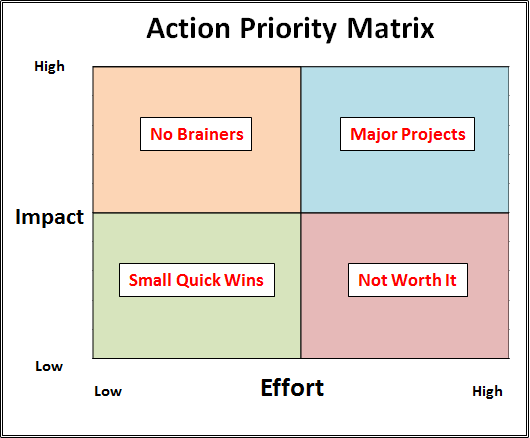You’ll find links to the other chapters at the bottom.
Introducing the Second Edition
Between November 2013 and December 2016, I took my time to write the 16-part ‘Complete AdWords Audit Series’ on the Certified Knowledge blog (this blog has been moved to Brad Geddes’s Theories on Marketing).
I want to take the opportunity to thank Brad for reviewing all my very long posts and letting me share them with his audience. It has been a huge privilege.
And I want to thank the readers, for their patience in between the posts and their enthusiasm for the series, online as well as offline. It really made it a very rewarding experience.
And now it’s about time to update and expand this series on the TrueClicks blog. And I’ll keep updating the posts whenever needed in the future. So let’s get started with the second edition of the introduction…
Standing on the shoulders of giants
Over the years great books, articles, webinars, and podcasts have been released about AdWords best practices and how to evaluate your account to improve its quality and performance.
Done well, a comprehensive audit may be one of the highest value activities in paid search. And done well, it takes quite some time, especially for larger accounts.
This post is an introduction to a series that attempts to put all these best practices together in a prioritized order, providing a step by step guide to perform your own AdWords audit. Hopefully saving you time with your audit while improving its contents.
It is an ambitious objective, but as the saying goes, I will be standing on the shoulders of giants. So whenever I’ve found a source that will provide you clarification and guidance for a specific best practice, I will simply try to summarize it as short as possible and link to these ‘giants’.
So obviously, I’m not trying to reinvent the wheel here, but I do hope to provide a useful contribution to the paid search and online marketing community that has been so generous in sharing its knowledge over the years. Consider this series as an effort to tie this shared knowledge about AdWords best practices and audits together.
I’ll focus specifically on Google AdWords, but you can also apply most of these analyses and recommendations to Bing Ads and advertising on other search engines.
Disclaimer: though it’s usually a good idea to follow best practices, there are exceptions and reasons why best practices can fail. To learn all about why this happens and to see actual examples, I can highly recommend Brad Geddes’ webinar When Best Practices Fail + the corresponding slides.
So I can’t guarantee my advice will improve your results every single time, but it should in 80% to 90% of the cases.
Let’s start with the why, when, who and what of PPC Audits, which will largely be based on:
- The Who, When & Why Of PPC Account Audits
- Learn How to Audit Your PPC Account with Joe Kerschbaum
- The Complete PPC Account Audit Guide
I’ll end the post with what an audit should contain and what it usually costs.
Why Audit?
No account is perfect. Not even yours. Especially if you have been working on the same account for a long time, issues, opportunities and best practices may have been missed.
By stepping out of day-to-day activities and letting a fresh pair of eyes evaluate every aspect of your paid search program over a longer time frame, you will generate a list with issues to fix, ways to save money (by cutting waste), and opportunities to generate more traffic or conversions.

So it’s not about daily (or weekly) optimizations like bid changes and keyword research, but it’s looking at the bigger picture and making sure no opportunities are missed.
When to Audit?
This depends on the size of the account. As a rule of thumb: thorough audits should be done at least twice a year for smaller and mid-sized accounts and quarterly for larger accounts.
As you should get a (long) list of actionable recommendations to improve your account, you’ll also need the time to implement these recommendations before performing another audit.
If you work at an agency and inherit an account from another agency (or the advertiser’s in-house team), an audit is always a good starting point.
But if you have a tool or script that does all the hard auditing work for you, heck, why not audit weekly? The sooner you find your missed opportunities, the better.
Who Should Audit?
It’s best not to have the one(s) managing the account perform its audit. As the account should be challenged and questioned during an audit, you’ll need a fresh perspective to truly do that.
On the other hand, if it’s done by a competing specialist or agency trying to win the account, you should also take their conclusions with a grain of salt. They have an incentive to exaggerate the problems and to understate what’s already working well.
So try to find the most knowledgeable and independent expert or agency you can find. And it’s best if he or she does not and will not manage the account, so you’ll be sure to get an unbiased review.
What Should an Audit Contain?
Below you’ll find the list of topics that this series will cover, so in my view, all these topics should be part of the audit. Except for Shopping that’s only applicable to retailers.
For each area of your account you should get:
- An analysis: how are you currently measuring up concerning best practices and performance?
- Recommendations: what should be done to improve the account? These recommendations should be actionable and specific. If there are ad groups with just 1 active ad, these should be listed out. And if particular words should be added as a negative, these should also be listed out. Just to name two examples.
- Effort and impact estimates for these recommendations. Although this can be hard to quantify, it helps to prioritize the work that should be done after the audit.
Mapping the recommendations in an action priority matrix like the one below is a great way to get a quick feel for the priorities.
Start with the no-brainers, then do the small quick wins and plan to do the major projects as soon as possible.
And if it’s not worth it, it shouldn’t be part of the recommendations.
As mentioned, a complete audit will provide you with an analysis and recommendations for each of the PPC topics below. These will also be the chapters of this series:
- Goal Setting
- Tracking
- Campaign Settings
- Ad Extensions
- Impression Share
- Quality Score
- Account Structure
- Keywords and Match Types
- Ad Copy
- Lin-Rodnitzky Ratio
- Testing
- Shopping (if applicable)
- Bid Management
- Landing Pages
- Audiences
- Display Network & Gmail Ads
- YouTube
- Automation
This is the order in which I like to audit (and fix) accounts. First of all, goal setting and tracking should be optimal to get a complete picture of what you’re trying to achieve and if you’re actually achieving it.
Both affect everything else you do in your account, so if these first two areas aren’t optimal, you should fix this before doing anything else.
I imagine the order of the rest of the list above is up to discussion. For example, some may say account structure is more important than ad extensions (and I agree), but the reason ad extensions are checked first is that they can be considered a quick win.
What Should An Audit Cost?
Many agencies will offer advertisers an audit for free. It’s a popular way to acquire clients. But if it’s free, you probably won’t get a custom-made 20-page report they spent 10+ hours on, listing out all the specific things you should do to improve your account.
And that’s fine. There’s nothing wrong with getting a free quick health check in the process of selecting an agency, just make sure you don’t pick an agency solely on promises made and opportunities found.
As George Michie says in my all-time favorite (and short) blog post on this topic, PPC Agencies Promising/Forecasting Results:
“Selecting a vendor should be based on a good match between the agency’s tools and knowledge and the advertiser’s needs. Their performance should be judged based on their reputation and careful questioning of their references. The reference calls can be very revealing.
Every agency will give you references from clients who love them, the difference is whether the reference knows their stuff. Good agencies make the sharp clients happy, bad agencies make only the uninformed happy. Choosing a vendor based on who makes the biggest promise is a recipe for disappointment.”
Now let’s say you just want an audit for an audit’s sake and aren’t looking for an agency. Or maybe you work at an agency yourself and would like to audit your own accounts.
In that case, you should just hire an independent expert or agency (that won’t get to manage the account) or use a tool like TrueClicks.
If you hire an expert or agency, an audit usually costs between $1,500 and $2,000, but it could go up all the way to $5,000+ for very large accounts (or MCC’s). This price is for the audit only, not for implementing the recommendations.
And for that price, you should get a custom-made analysis of 10+ pages with lots of actionable recommendations, preferably prioritized.
If you want TrueClicks to automatically audit and monitor your accounts, pricing starts at $49/month. And this will be the only shameless plug in the audit series, I promise.
Stay tuned for the next part of this series, the second edition of Goal Setting!
To further enhance the value of the series, I’m hoping that you’ll use the comments section for any questions, omissions found or suggestions for improvement you may have!















